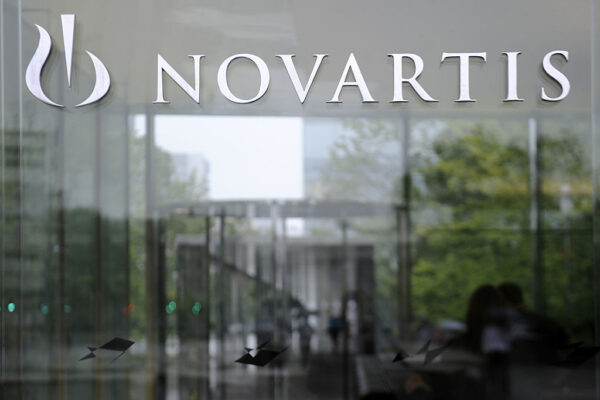
A Novartis drug candidate for a rare kidney disease has preliminary data from a pivotal study suggesting it could be competitive with two available treatments, and the pharmaceutical giant is now planning to seek accelerated FDA approval. But yet-to-come data from the pivotal study will be key in assessing whether Novartis’s drug can truly stand apart.
In immunoglobulin A nephropathy (IgAN), an abnormal form of the disease’s namesake protein builds up in the kidneys, leading to damage and worsening function of these organs. The autoimmune reaction at the root of IgAN is associated with dysfunction of the complement system, a part of the immune system. Novartis’s drug, iptacopan, is a small molecule designed to bind to and block a complement protein called factor B.
On Monday, Novartis announced preliminary Phase 3 results showing iptacopan, taken orally twice daily, led to reductions in proteinuria, high levels of proteins in urine that are indicators of kidney disorders. Without disclosing specific numbers, the company said the proteinuria reduction measured at nine months was statically significant compared to placebo.
Proteinuria reduction is the first of two main goals for the pivotal study. The second primary endpoint is showing the drug’s effect on the kidneys. This goal will be assessed by tracking estimated glomerular filtration rate, a measure of kidney function. The study is measuring eGFR over 24 months.
Achieving proteinuria reduction was the key clinical trial benchmark leading to the accelerated FDA approval of once-daily capsule Tarpeyo, the Calliditas Therapeutics drug that in 2021 became the first approved therapy for IgAN. Filspari, a once-daily capsule from Travere Therapeutics, secured its accelerated FDA nod earlier this year based on statistically significant proteinuria reduction.
For IgAN drugs to secure full FDA approval, they must demonstrate kidney function improvement. Tarpeyo’s Phase 3 results show the Calliditas drug achieved that benchmark with eGFR data measured over the course of 24 months. But two weeks ago Travere reported that the eGFR data for its drug fell just short of statistical significance. However, unlike the pivotal tests for the Novartis and Calliditas, which compared the therapies against a placebo, Travere was tested against an active comparator, irbesartan. That generic blood pressure drug is also used to slow nephropathy progression, and the kidney benefit it offers makes it a tougher comparator than a placebo.

What Are Healthcare Organizations Getting Wrong about Email Security?
A new report by Paubox calls for healthcare IT leaders to dispose of outdated assumptions about email security and address the challenges of evolving cybersecurity threats.
Novartis expects iptacopan’s 24-month data will be ready for a preliminary readout in 2025. In the meantime, the drugmaker said results from the nine-month endpoint will be reviewed with the FDA, with the goal of submitting an application seeking accelerated approval next year.
Iptacopan could reach the market sooner as a treatment for paroxysmal nocturnal hemoglobinuria (PNH), a complement protein-mediated blood disorder in which the immune system destroys red blood cells. Data from a clinical study that compared iptacopan against two AstraZeneca therapies showed the Novartis drug handily beat those two standard of care PNH drugs. Applications for iptacopan in PNH are currently under review in the U.S. and Europe. Novartis is also evaluating the drug in three other indications.
Novartis is spreading its bets in IgAN therapies. Over the summer, the pharma giant completed its $3.2 billion acquisition of Chinook Therapeutics, whose pipeline includes two IgAN therapies, each bringing a different approach to treating the chronic kidney disease.
Photo: Adrian Moser/Bloomberg, via Getty Images








